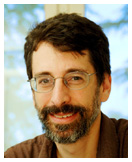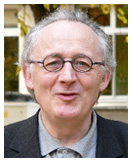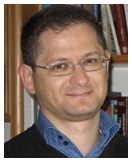| |
Andrew Appel, Princeton University |
| |
 |
Andrew W. Appel is Eugene Higgins Professor and Chairman of the Department of Computer Science at Princeton University. He is a member of Princeton's Center for Information Technology Policy. His research is in computer security, programming languages and compilers, automated theorem proving, and technology policy. He received his A.B. summa cum laude in physics from Princeton in 1981, and his PhD in computer science from Carnegie Mellon University in 1985. He has been Editor in Chief of ACM Transactions on Programming Languages and Systems and is a Fellow of the ACM (Association for Computing Machinery). |
|
|
| |
Patrick Cousot, École
Normale Supérieure, Paris and New York University |
| |
 |
Patrick Cousot, together with Radhia Cousot, is the originator of abstract interpretation. His current research is focused on practical methods of static analysis for critical embedded software, such as found in avionics and well as theoretical foundations such as termination verification. He has been Professor of Computer Science at the École Normale Supérieure (ENS) in Paris since 1991. As of March 2008, Cousot is a Professor of Computer Science at New York University. He has previously held positions at École Polytechnique (X, 1984-1997), University of Metz (1979-1984), and as Research Scientist at the French National Center for Scientific Research (CNRS, 1974-1979), at the University of Grenoble. |
|
|
| |
Cesare Tinelli, University of Iowa |
| |
 |
Dr. Cesare Tinelli is an associate professor of Computer Science at the University of Iowa. He received a PhD in Computer Science from the University of Illinois at Urbana-Champaign in 1999. His research interests include automated reasoning, formal methods, software verification, foundations of programming languages, and applications of logic in computer science. He is a founder and leader of the SMT-LIB initiative, an international effort aimed at standardizing benchmarks and I/O formats for Satisfiability Modulo Theories solvers. He received an NSF CAREER award in 2003 for a project on improving extended static checking of software by means of advanced automated reasoning techniques, and a Haifa Verification Conference award in 2010 for his role in building and promoting the SMT community. |
|
|
|
|
|
